Right now I’m bundled up in a thick jumper, hiding from the rain. A week ago I was in denim shorts and a floppy sun hat, basking in a field in Wiltshire. I was out west for the Chalke History Festival, which is a curious event, explicitly designed for geeks like us.
I had a brilliant time and will be returning next year, but full disclosure, two factors probably contributed to my enjoyment more than anything. Firstly, we had glorious weather, blue skies and hot sunshine, so the whole thing was enjoyed while gently sweating off sun cream. Secondly, I stayed with my best friend, who conveniently lives just up the road from the Chalke Valley. This meant that in addition to the festival, I got to enjoy the luxuries of excellent company, a soft bed, hot showers and some of the most beautiful country drives I’ve ever seen.
Billed as the UK’s biggest history festival, Chalke is astonishingly well-organised. It’s the only festival I’ve ever been to where there was ample loo roll, something I never imagined possible. The logistics and tech were flawless, and the army of stewards delightful. This was all the more impressive given that there is literally no phone signal or internet whatsoever in the Chalke Valley, which, once you’ve made rendezvous plans with your friends, is quite lovely.
But What About the History?
The festival programme was themed around several topics, but I observed three things kept cropping up all week. The first was technology and AI, about which no one seemed very informed, and (perhaps because of this), quite concerned. The archaeologists were by far the most positive, citing advances such as the use of AI to read long lost scrolls from Herculaneum. It was the writers who were nervous. In a packed tent, Tom Holland postulated that it would soon be possible to ask AI to write a book in the style of say, Simon Schama, on any topic, and it would be able to do so with ease.
The second theme was more subtle, but once I’d noticed it, it was everywhere. There was a lot of inter-generational disparagement. Throughout the week, the audiences were very old, and speakers may have simply been playing to the room. Nevertheless, there were many comments about the supposed ignorance and fecklessness of young people, and their apparent distain for taking anything other than surface-level appearances seriously. No evidence was proffered for any of this of course. The crowd were not only elderly, but ludicrously posh. I overheard a lot of the accent I’ve only previously encountered at the Foreign Office. Imagine lots of women who look like Camilla, wearing enormous jewellery and linen frocks, with lots of men in hats bellowing against vegetarian food. At one point. David Kynaston admitted on stage that when David Cameron was made Tory leader, it was reassuring to have a proper private school sort back after the likes of Major / Thatcher / Hague a return to ‘the voices of leaders in my childhood’, of those born to rule. The crowd responded warmly to this hogwash.
I also noticed that many of the events weren’t so much about history as current affairs. None of the books I recommend below were written by historians. They’re mostly journalists, and there’s one archaeologist, but none are professional historians. Why is this? Surely the UK’s biggest history festival should packed full of bright academics, keen to share their latest research and new books. Well, I’m sure they’d love to, but it isn’t so straightforward. Historians have to devote so much time and effort to securing an academic position, with all the teaching, publishing papers, applying for funding and financial insecurity that goes with it. Consequently, having the time and mental capacity to write a history book for general audiences can be a privilege for later on in their careers, or for those who aren’t in the academic system at all. For example, I attended two fantastic events by a real-life historian Zack White, who is based at the University of Southampton (Napoleon: The Good, The Bad, The Ugly and Waterloo By Air: The Battleground Mythbusted). He is clearly a passionate expert, and is building up his historical profile with a podcast, but has not yet published a book. Of course, one needn’t be an academic historian to write great history books, but their absence was notable. As much as I enjoyed the various historical reenactors, it was essentially an incredibly fancy non-fiction literature festival, but that’s no bad thing
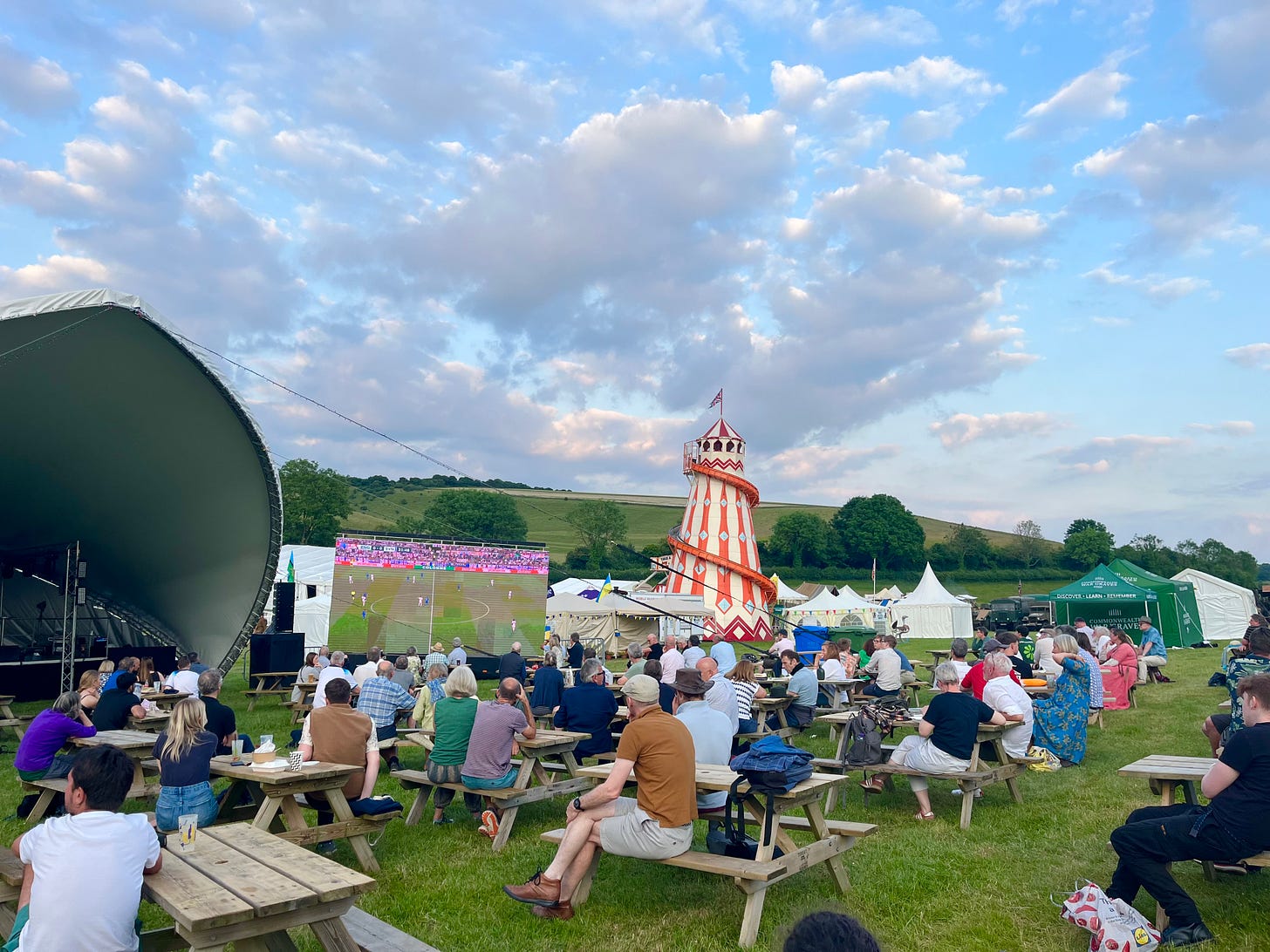
Chalke 2024 Book Recommendations…
I attended over thirty different events during the festival, all of which I enjoyed, so I’ve decided to limit my recommendations to events focused on newly published books.
Pagan Britain - Ronald Hutton
I’m not drawn to pre-history, but Ronald Hutton is always good value and I thought this event might contain some quirky stories. I was surprised to find it not so much a history of paganism than an examination of how and why public interpretations of Britain’s ancient history matter. Hutton’s lecture stood out by calling for plurality, creativity and imagination around the stories we tell about British history. He argued that British identity needn’t be so fragile as to only stand up to one historical interpretation. If he’s an expert and can admit that he doesn’t know why Stonehenge was built, then why not let people imagine whatever stories they want about it.
An African History of Africa - Zeinab Badawi
A surprisingly well-attended event about African history from the perspective of Africans rather than Europeans. The interviewer was not a subject matter expert, nor a historian, so it was a fairly surface-level discussion, but Badawi had an important message which was summed up in this proverb:
When the lions have historians the hunters will cease to be heroes.
In her mellifluously old-school BBC voice, Badawi was bending over backwards not to appear at all threatening, reassuring the (all white) audience that she had no interest in debates about decolonising British history, and praising the British education she received. She talked about ancient civilisations and medieval empires, focusing on some remarkable queens and kings. Most interestingly of all, Badawi wrote An African History of Africa after spending years visiting academics in more than thirty African countries. I could have listened to her stories about the historians she met across Africa for hours. How wonderful it would be if their research was published in the UK and promoted at events such as this. There was also an excellent moment in the Q&A section when an old duffer rattled on about his time in Cameroon, and berated Badawi for not including it in her book. She politely responded by explaining that this was because Cameroon didn’t exist in the period she was writing about.
Power: The People - Lynne Jones and Erica Benner (with Ali Ansari)
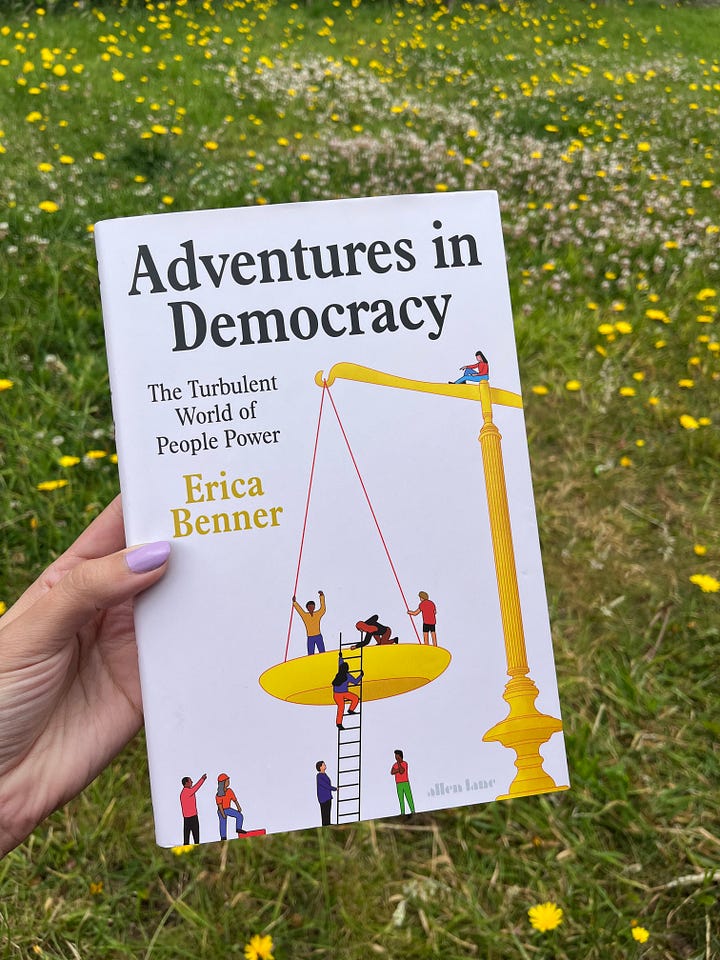
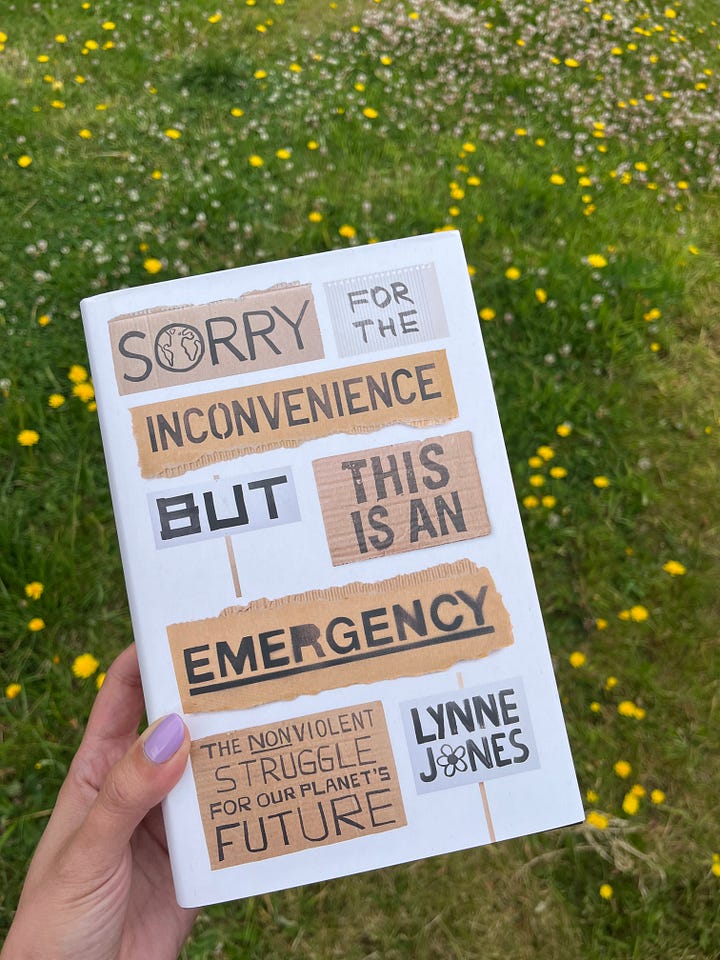
This was a lively discussion about the state of political protest today. Benner had just returned from Georgia, where she had been working with young activists. She spoke movingly about their bravery and intelligence, which jarred with Ansari’s crowd-pleasing jibes against ‘kids these days’. Jones was also able to speak from extensive personal experience, and, given the audience, cleverly focused on financial action that can be taken, such as disinvestment. In the Q&A portion I politely, and apparently provocatively, asked why protest was only being discussed in terms of young people, when the retired are often those with the time/experience/resources to take action. This rather benign point led to me being cornered and verbally attacked by some very angry old people on my way out of the tent. Fortunately, I was rescued by a charming local archaeologist who took pity on me and whisked me away to the Waterstones tent, where Benner thanked me for making the point.
Adventures in Democracy: The Turbulent World of People Power by Erica Benner
Sorry for the Inconvenience But This Is an Emergency: The Nonviolent Struggle for Our Planet's Future by Lynne Jones
The Dictionary People: The Unsung Heroes Who Created The Oxford English Dictionary - Sarah Ogilvie
This was a sublime demonstration of the fact that a truly passionate and charismatic speaker can make almost anything interesting. The first Oxford English Dictionary was an enormous, nineteenth century crowd-sourced project, and so it provides an insight into the lives of people who don’t normally feature in history books. The talk was a dual story, about the fascinating lives of the many characters who contributed to the creation of the OED, and Ogilvie’s journey to discover them, which started with the chance discovery of James Murray’s address book in a dusty, forgotten archive box. Many of the contributors to the OED had no other outlet for intellectual activity, being lower class or women or even institutionalised as lunatics. I found it all unbelievably touching and think this collective biography, which was longlisted for the Women’s Prize, would make a perfect holiday read.
Final Verdict: A Holocaust Trial in the Twenty-first Century - Tobias Buck
This was a measured and thought-provoking conversation about what it means to prosecute individuals who served the Nazi war machine over seventy years ago. Out of a reasonable desire not to reveal the whole story, Buck was vague about the nature of the trial and the outcome of the case, instead focusing on the backstory. Final Verdict is about Bruno Dey, who faced trial in 2019 for the murder of 5,230 people at Stutthof, a Nazi death camp in Poland. It raises complex questions of responsibility and judgement, as Dey was a conscripted teenager, posted to a camp guardpost at the time. I was particularly intrigued by Buck’s discussion of his own grandfather, an early joiner of the Nazi party, which is woven throughout the book. Coincidentally I’ve just started reading Nazi Billionaires: The Dark History of Germany’s Wealthiest Dynasties by David de Jong, which should make for an interesting comparison read.
Fixing France: How to Repair a Broken Republic - Nabila Ramdani
Another journalist, Ramdani’s talk was a tour de force. Her central thesis is that the Fifth Republic urgently needs reform because it centralises too much power in the office of the President. This is a direct consequence of De Gaulle’s prosecution of wars of colonial oppression, and has led to the disenfranchisement many French feel today, which has in turn contributed to the rise of the far right. No single person has the answers to all of France’s problems, but anyone caught up in the extraordinary political events across the Channel at the moment would do well to start with Fixing France.
From Scrolls to Scrolling: Writing History in the 21st Century - Honor Cargill-Martin and Rachel Cockerell (with Laura Bailey)
Last but not least, one of the most edifying discussions of the festival, which focused on the practice of history. Three female historians, all in their twenties, took to the stage. They’re ones to watch, and Cargill-Martin seems destined for telly. They had no interest in decolonising traditional narratives, and didn’t discuss anything topical. They talked about their processes and the different sources they used. Cargill-Martin trod familiar ground regarding Roman history, but Cockerell was very different. Cockerell is not a trained historian but a journalist, and started out intending to write a family memoir which morphed into a work of history. I usually loathe family memoirs, as they tend to be flaccid accounts of smug privilege, but this one is distinct.
Melting Point: Family, Memory and the Search for a Promised Land has an innovative form as it is told entirely through the sources, without any authorial prose. Cockerell made the excellent point that there hasn’t been enough experimental history, with which I completely agree, so I’m looking froward to starting this one.
Both Cockerell and Cargill-Martin were able to publish very young, seemingly because they didn’t need day jobs, something several members of the audience expressed envy at. This was the only event where many of the questions were from aspiring historians (of a range of ages), presumably because these young women seemed more accessible, less intimidating, than other speakers. To distinguish Chalke from other literary festivals, it would be interesting to see some events aimed at would-be historians (without aping the huge creative writing industry). Either way, I’m already looking forward to my next history festival later this month…
Thanks for reading. If you enjoyed this post, please hit the ❤️ below and share with anyone.
Not a subscriber? Take a moment and sign up to Suburban Shelves for free.
All books linked go to the Suburban Shelves bookstore at Bookshop.org, from which I receive a very small amount of affiliate proceeds.

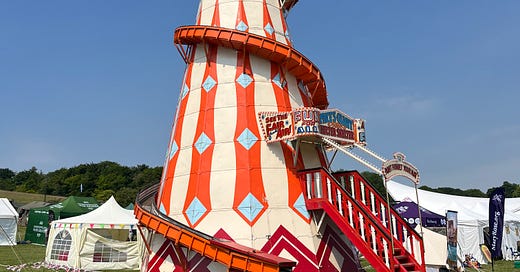


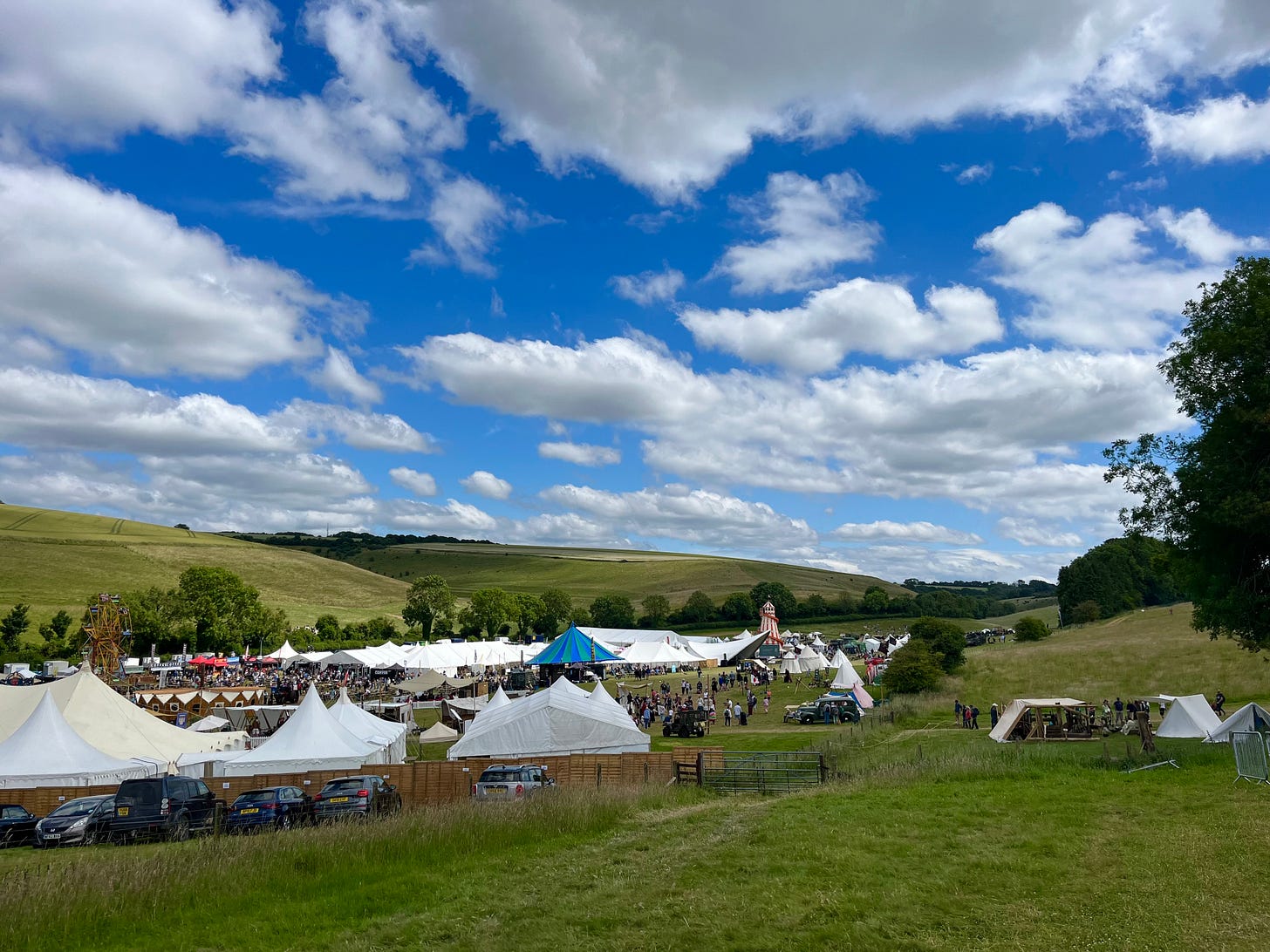

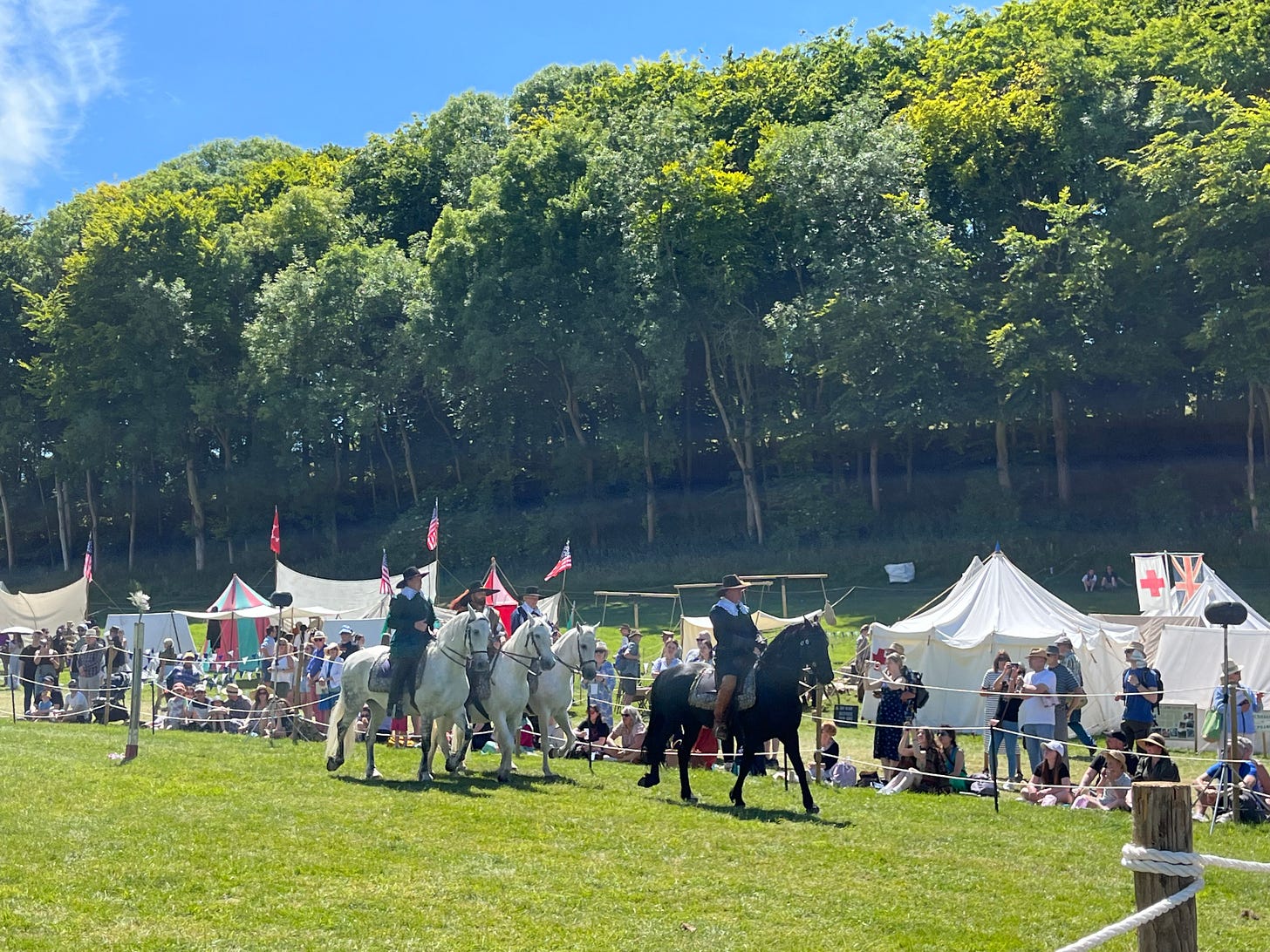
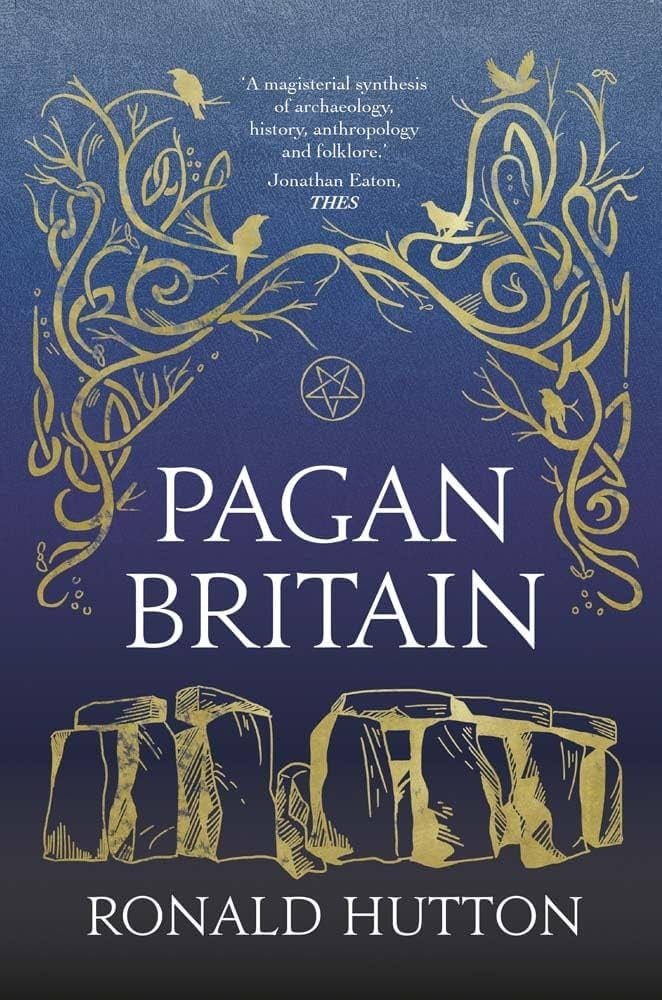
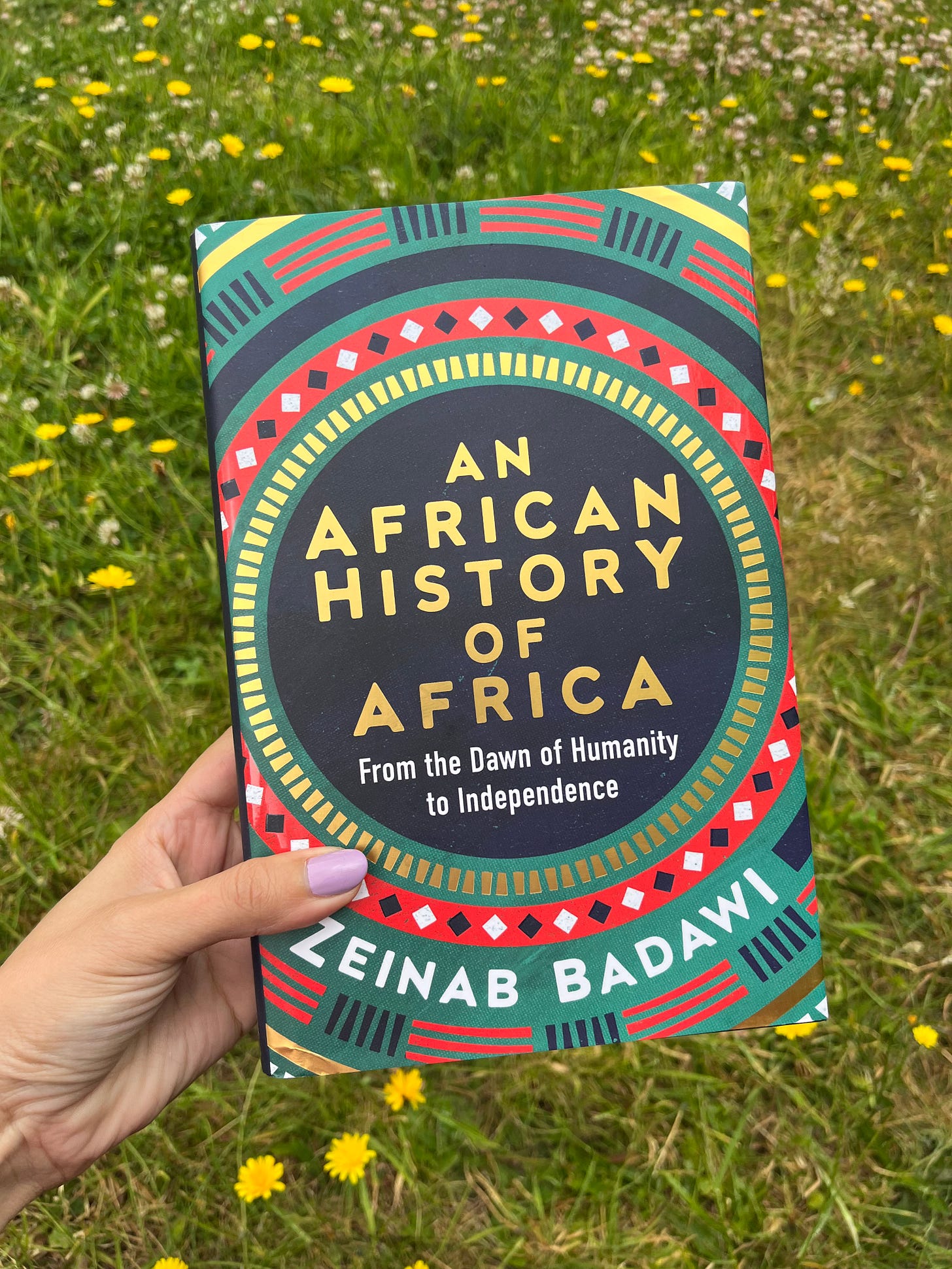
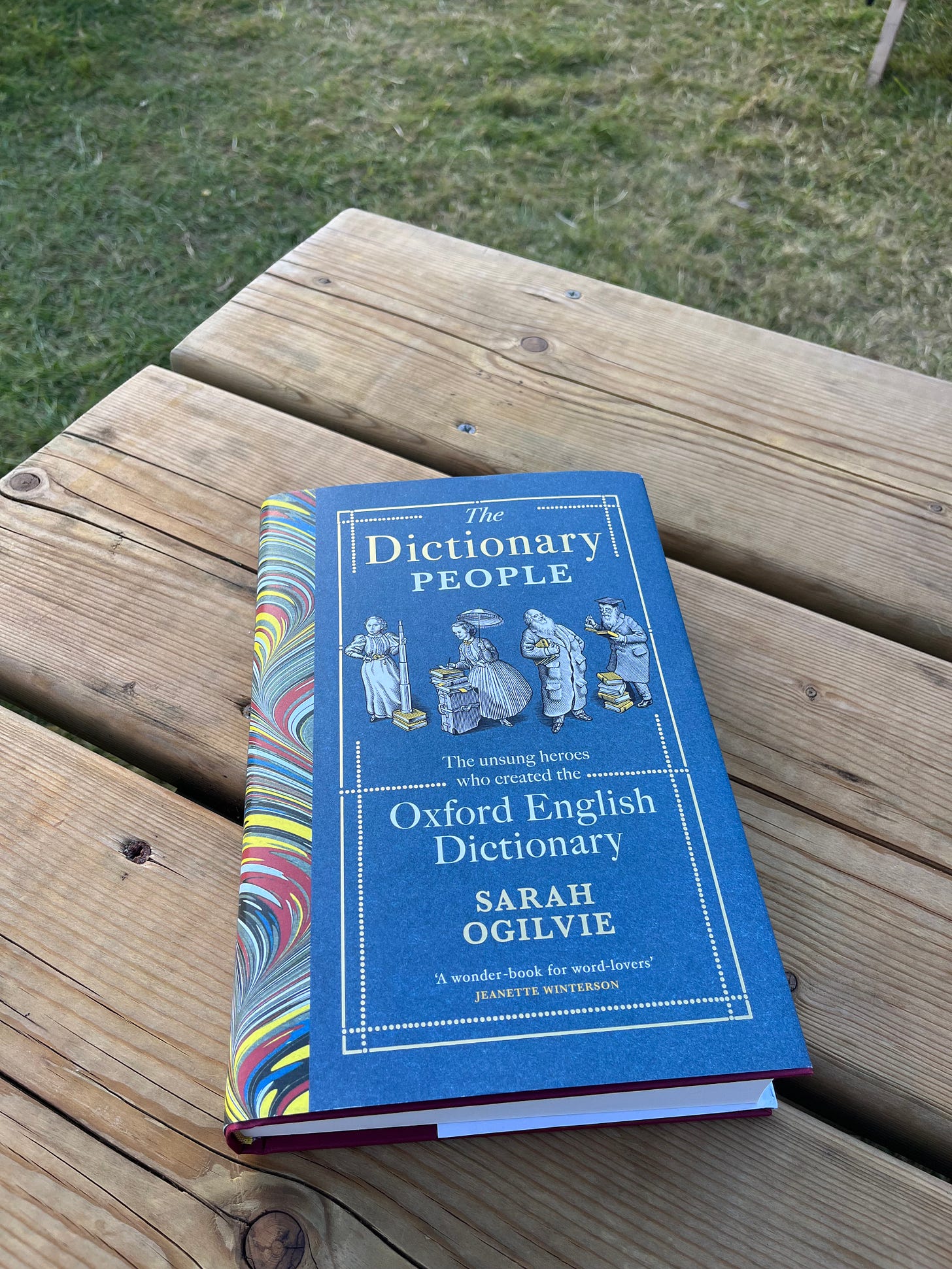
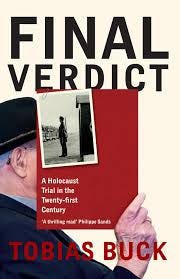
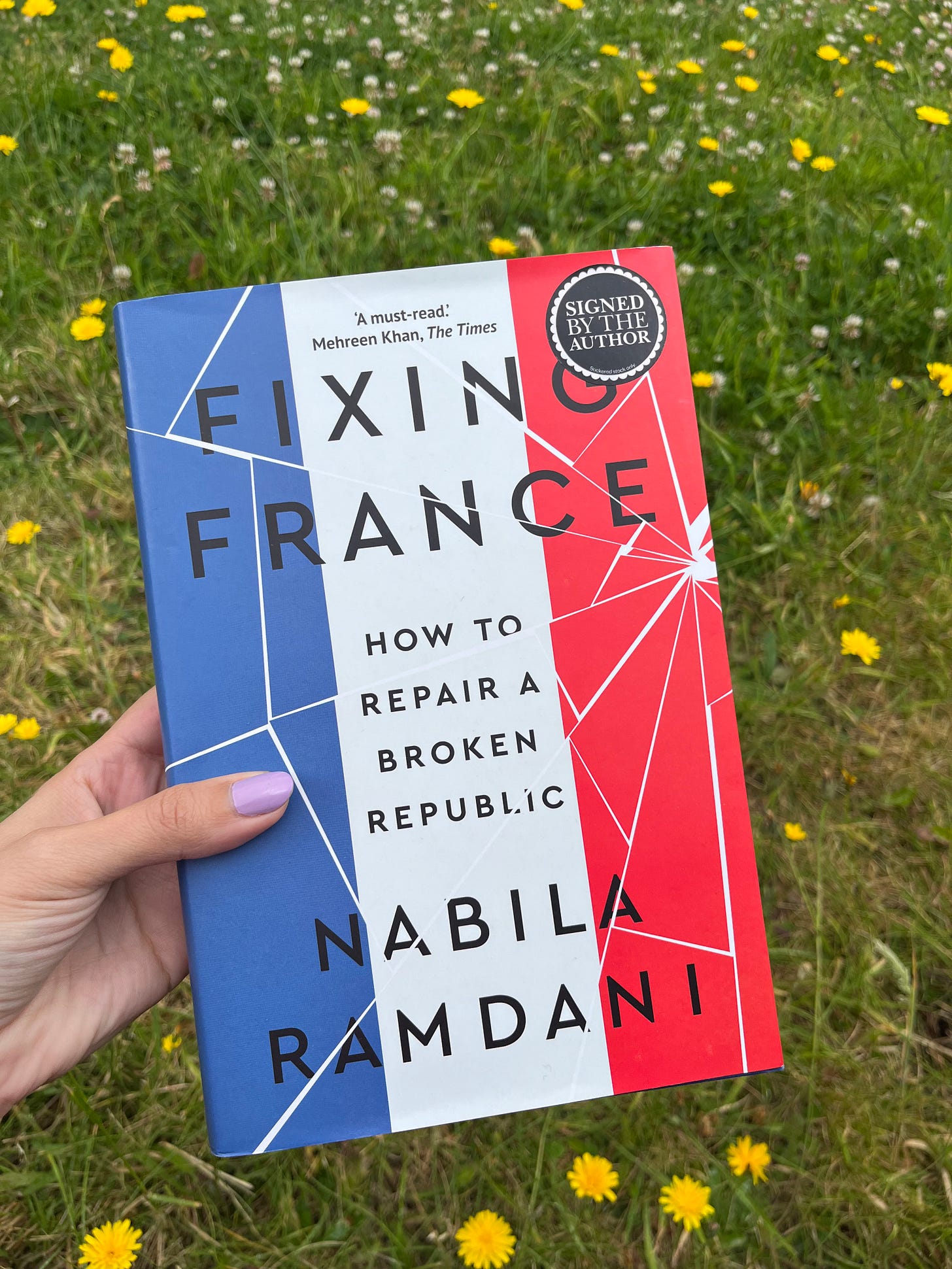
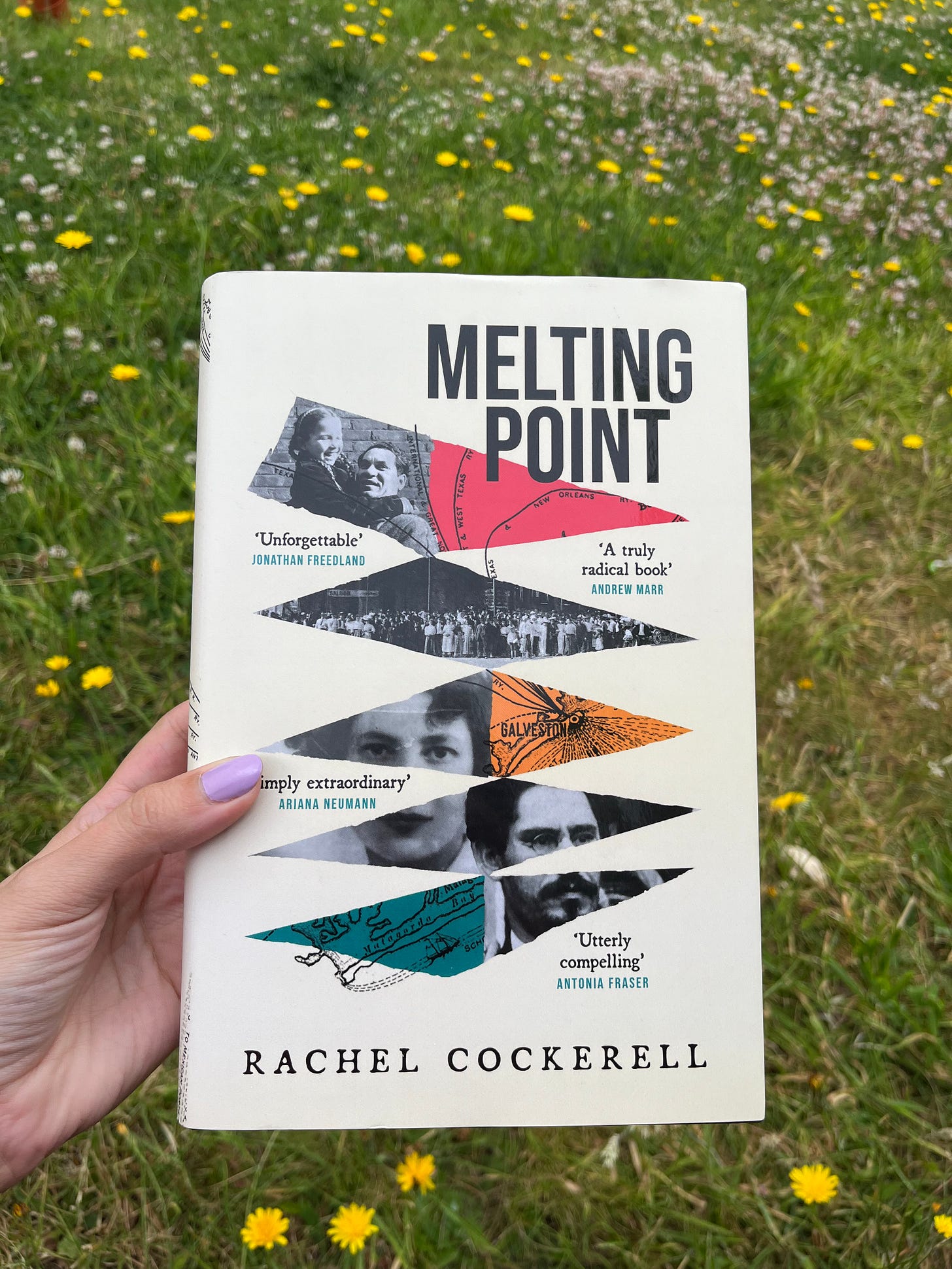
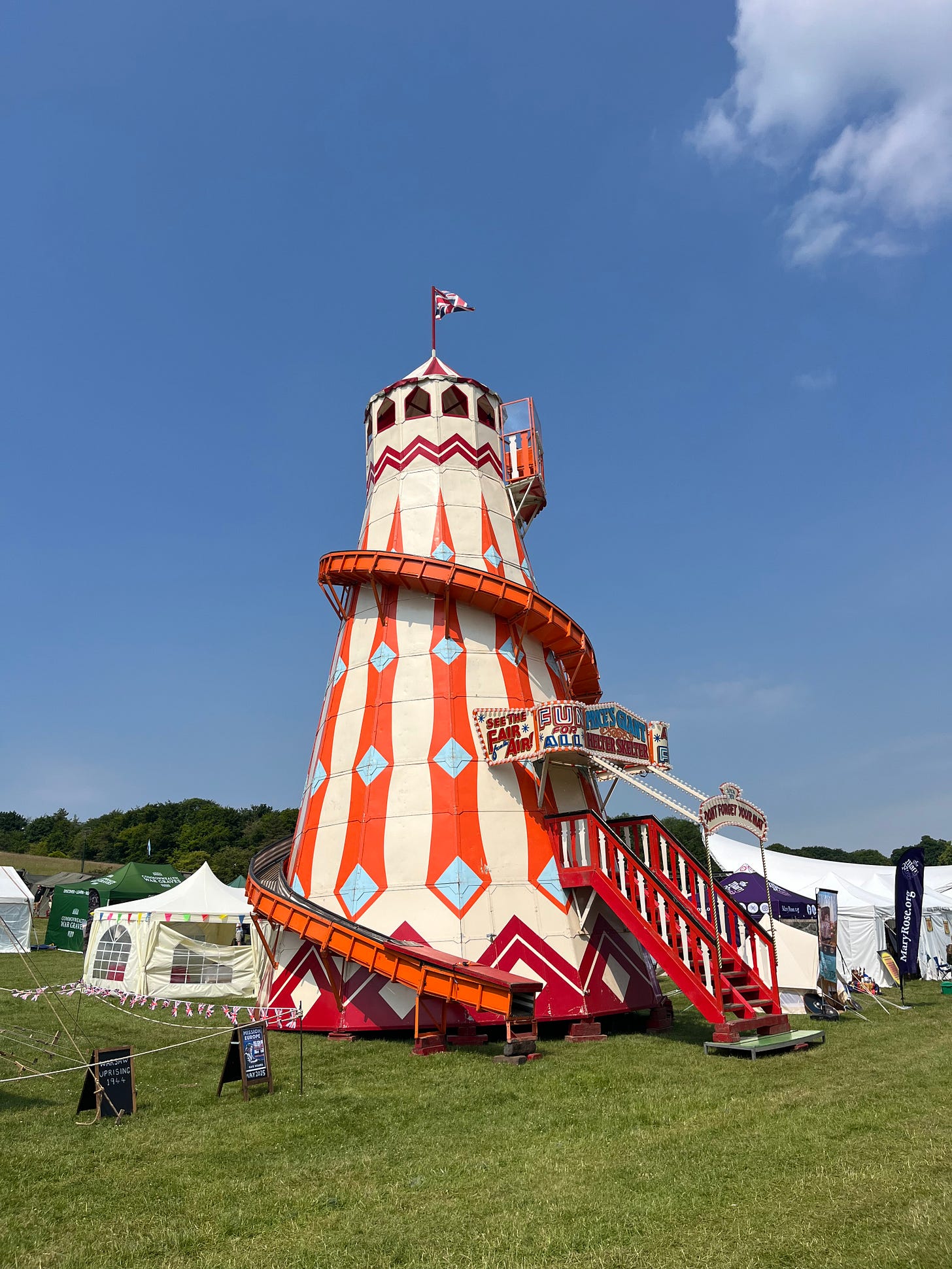
Sounds like the audience should be consigned to history. But thanks for the heads-up on the books.